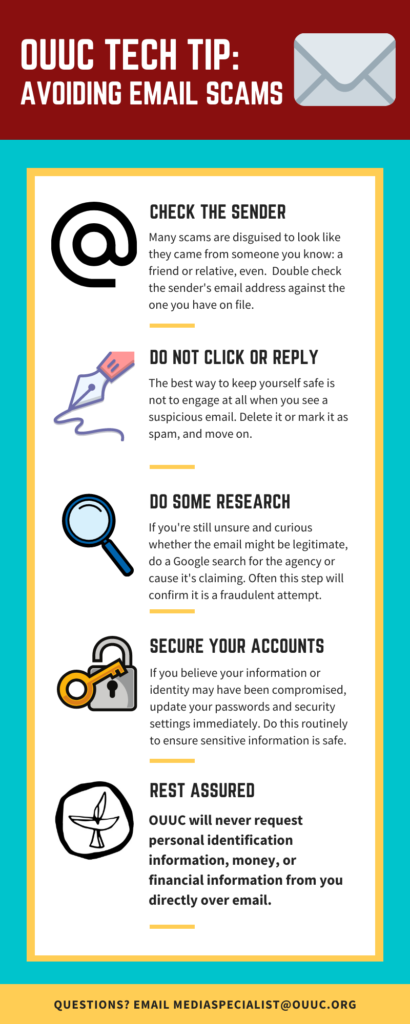‘Tis the season for email scammers to try to take full advantage of unsuspecting consumers. Truth be told, it’s always the season for fraud attempts and what are called phishing attacks–but these activities tend to increase over the holidays when people are in the giving and gifting spirit.
One popular email scam making the rounds asks the recipient for help, then instructs them to purchase one or more gift cards. The gift cards might be for a sick relative, a work project, or a child’s birthday. The sender’s email address is generally disguised to look like it’s coming from a friend or coworker, making the attempt look even more believable. Other scams might look like they’re coming from your bank, a credit card company, a social media site, an online store you’ve used, or an online payment service like PayPal. Read more from the Federal Trade Commission on how to recognize potential scammers.
No matter what these messages are claiming or demanding, they are usually looking to steal money, your personal identification information, or your financial information. It is very important that you do all you can to keep yourself, your family, and any sensitive information safe.
Rest assured that OUUC will not ask you for any of this information or solicit gifts from you directly.
If you see a suspicious email that looks like it came from a friend in the congregation, or even a staff member, it is highly unlikely there has been a Realm breach or some other compromise of church security.
It might mean that the sender’s security was compromised in some way, and you can reach out to the real person (do not reply to the suspicious email) to check whether they sent it or if their account was breached. It might mean that an agency or bot identified you as a potential vulnerable target. You might consider updating your own email password.
The best response to a questionable email is no response.
As long as you have not responded to a questionable email or taken any actions it demanded (such as purchasing gift cards), you are at far less risk for future fraud attempts. That said, there are some additional steps you can take to keep yourself and your information safe. Here are 10 tips from phishing.org to avoid any types of phishing scams.
If you’re interested in learning more, here is some additional helpful information from PCMag and Money Crashers.

